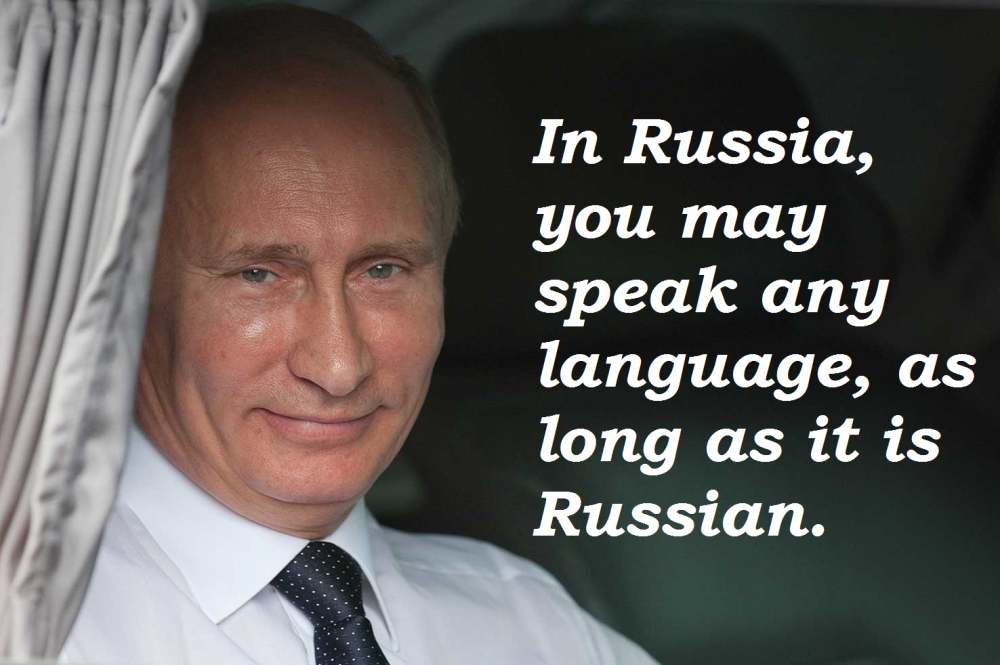Despite the insistence of Moscow officials that everyone in the Russian Federation speaks Russian and that therefore support for other languages is ever less necessary, Igor Barinov, head of Russia’s Federal Agency for Nationality Affairs, says that there has been a decline in Russian language knowledge in the non-Russian republics.
That trend is undoubtedly worrisome to the center because it echoes the pattern that took place among non-Russians in the union republics in the final years of the Soviet Union and thus suggests Vladimir Putin’s confidence that the Russian language will hold his country together may be misplaced.
But Barinov’s acknowledgement almost certainly presages a new push by the center to introduce even more Russian language instruction in the non-Russian schools, something republic leaders and populations are likely to oppose and that thus sets the stage for a new round of conflict over language use and much else.
Speaking to the second All-Russian Seminar-Conference on Language Policy in Education: An Instrument for the Formation of All-Russian Civic Identity yesterday, Barinov acknowledged that this trend away from Russian language knowledge is also notable among numerically small peoples who lack autonomy and among immigrants.
In his remarks, the nationalities chief said that
He noted that more money has to be found for pre-school Russian language instruction despite budgetary shortages, adding that pilot programs that had been introduced in some republics had been effective but have been recently eliminated because of reductions in the amount of money allocated for education.
Barinov’s words are thus another reminder of the ways in which Vladimir Putin’s military buildup is reducing rather than increasing Russia’s national integration and security, a development that he and other Russians may soon come to rue.
Related:
- Russian army put on war footing
- Kremlin’s double standards on language issues in post-Soviet space continued
- Russia ‘for first time in its history’ has lost its monopoly on the Russian language, Zhadan says
- Under Russian occupation, Crimean Tatar language rights exist ‘only on paper,’ Turkish rights activists say
- Russia’s actions in occupied Crimea show how Moscow plans to destroy non-Russian languages in Russia itself


